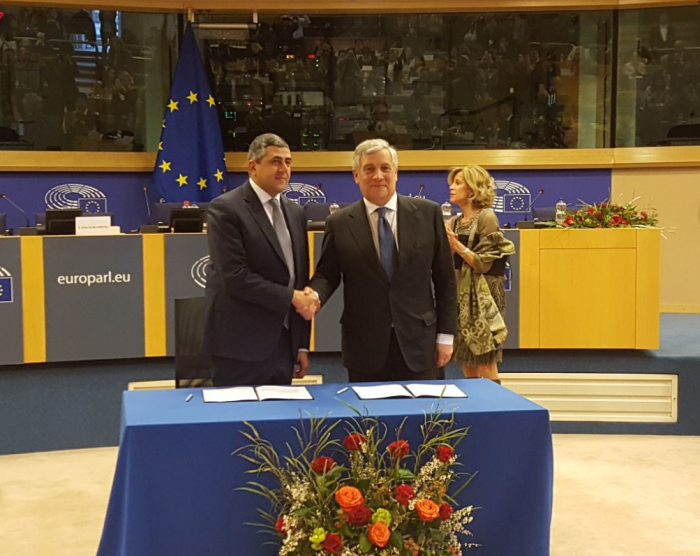
UNWTO deepens cooperation with European Union
Advancing sustainable tourism across Europe is at the centre of an agreement signed between the United Nations World Tourism Organisation and the European parliament.
During his first official visit to Brussels, UNWTO secretary general, Zurab Pololikashvili, met with the president of the parliament, Antonio Tajani, the European commissioner for internal market, industry, and entrepreneurship, Elżbieta Bieńkowska, and the vice chair of the committee on transport and tourism, Istvan Ujhelyi.
Addressing the Tourism Task Force of the European parliament, Pololikashvili highlighted the need to enhance integration, connectivity and technology to maximize the role of tourism in creating jobs and stimulating growth in the European Union.
Europe is the world’s leading tourism destination, receiving half of the world’s 1.3 billion international arrivals.
In 2017, international tourism in Europe grew eight per cent, one percentage point above the world average, totalling 671 million tourists.
ADVERTISEMENT
During the signing of the agreement, Pololikashvili stressed how “the best way to ensure tourism’s positive impact for its people is by working closely with the European parliament as the representative of the people of Europe”.
“Today we are becoming stronger partners in our work to make tourism, and cultural tourism in particular, a driver of prosperity, opportunity, and better livelihoods across the EU,” he added.
UNWTO and the EU parliament will work on promoting good practices and the sharing of knowledge and experiences on the ground.
The agreement coincides with 2018 as the European Year of Cultural Heritage and is an opportunity to highlight the relevance of cultural tourism, which is an outstanding travel asset in the EU countries.
“Over the next ten years, tourism can create more than five million new jobs, not least because the number of tourists is set to double to more than two billion.
“Europe must not let this opportunity pass by.
“Through the growth of tourism, we can offer real prospects for the new generations and boost strategic sectors of the economy, such as transport, trade, luxury goods, shipbuilding, construction, agri-foodstuffs and the cultural and creative industries,” said Ant] Tajani.
“We can’t just wait for this to happen by itself.
“We must work, including with UNWTO, to improve our competitiveness and our skills, to face the challenges of digitalisation and to promote Europe as the world’s number one tourist destination.”

